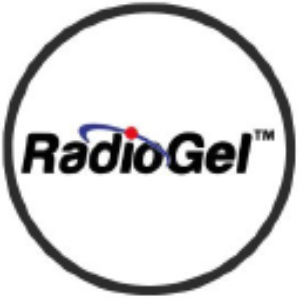Vivos Inc. Enhances its Intellectual Property Protection
Vivos Inc. (OTCQB: RDGL) has successfully filed a particle patent in multiple countries, including the USA, EU, Japan, and others, enhancing its intellectual property strategy. The company is set to file a new utility patent for its hydrogel component later this year. This move underpins Vivos's plans to establish exclusive licensing agreements globally. Vivos has developed innovative brachytherapy treatments using Yttrium-90 for tumors in animals and humans, with its products aiming to offer effective radiation therapy while minimizing side effects.
- Filed particle patent in the USA, EU, Japan, Canada, Brazil, China, India, South Korea, and Russia.
- Plans to file a new utility patent for hydrogel technology later this year.
- Proprietary hydrogel technology could lead to exclusive global licensing agreements.
- RadioGel™ and IsoPet® products are based on innovative brachytherapy for targeted tumor treatment.
- None.
Insights
Analyzing...
Richland WA, Feb. 24, 2022 (GLOBE NEWSWIRE) -- Vivos Inc. (OTCQB: RDGL), Vivos Inc is pleased to report that it filed its particle patent in several countries.
Our new patent team filed the particle patent in the USA, Canada, the European Union, Japan, Australia, Brazil, China, India, South Korea, and the Russian Eurasian (Russia, Armenia, Azerbaijan, Belarus, Kazakhstan, Kyrgyzstan, Tajikistan, and Turkmenistan). Our patent counsel will also be pursuing amendments to increase the number of claims related to the particle patent.
In closing Dr. Korenko stated, “Intellectual property protect is always a priority and over time becomes increasingly important. Later this year we plan to submit a new utility patent for our hydrogel component. Our strategic plan is to use our intellectual property as a foundation for our exclusive licensing strategy in several regions in the world.”
About Vivos Inc. (OTCQB: RDGL)
Vivos Inc. has developed an Yttrium-90 based injectable brachytherapy device, for the treatment of tumors in animals (IsoPet®) and in humans (RadioGel™). Brachytherapy uses highly localized radiation to destroy cancerous tumors by placing a radioactive isotope directly inside the treatment area using the company’s proprietary hydrogel technology. The injection delivers therapeutic radiation from within the tumor without the entrance skin dose and associated side effects of treatment that characterize external-beam radiation therapy. This feature allows safe delivery of higher doses needed for treating both non-resectable and radiation-resistant cancers.
RadioGel™ is a hydrogel liquid containing tiny yttrium-90 phosphate particles that may be administered directly into a tumor. The hydrogel is an yttrium-90 carrier at room temperature that gels within the tumor interstitial spaces after injection to keep the radiation sources safely in place. The short-range beta radiation from yttrium-90 localizes the dose within the treatment area so that normal organs and tissues are not adversely affected.
RadioGel™ also has a short half-life – delivering more than
The IsoPet® Solutions division used university veterinary hospitals to demonstrate the safety and therapeutic effectiveness for different animal cancers. Testing on feline sarcoma at the Washington State University was completed in 2018 and testing on canine soft tissue sarcomas at the University of Missouri was completed in 2019.
In 2018 the Company obtained confirmation from the FDA Center for Veterinary Medicine that IsoPet® is classified as a medical device according to its intended use and means by which it achieves its intended purpose. The FDA also reviewed the product labeling which included canine and feline sarcomas as the initial indications for use. The FDA does not require pre-market approval for veterinary devices so no additional approval is required. Following the demonstration phase, Vivos is able to generate revenue through the sale of IsoPet® to University animal hospitals and private veterinary clinics.
IsoPet® for treating animals uses the same technology as RadioGel™ for treating humans. The Food and Drug Administration advised using different product names in order to avoid confusion and cross-use.
Safe Harbor Statement
This release contains forward-looking statements within the meaning of the Private Securities Litigation Reform Act of 1995. You can identify these statements by the use of the words "may," "will," "should," "plans," "expects," "anticipates," "continue," "estimates," "projects," "intends," and similar expressions. Forward-looking statements involve risks and uncertainties that could cause results to differ materially from those projected or anticipated. These risks and uncertainties include, but are not limited to, the Company's ability to successfully execute its expanded business strategy, including by entering into definitive agreements with suppliers, commercial partners and customers; general economic and business conditions, effects of continued geopolitical unrest and regional conflicts, competition, changes in technology and methods of marketing, delays in completing various engineering and manufacturing programs, changes in customer order patterns, changes in product mix, continued success in technical advances and delivering technological innovations, shortages in components, production delays due to performance quality issues with outsourced components, regulatory requirements and the ability to meet them, government agency rules and changes, and various other factors beyond the Company's control.
CONTACT:
Vivos Inc.
Michael K. Korenko, Sc.D.
President & CEO
MKorenko@RadioGel.com






